
PhD Students
MA Students
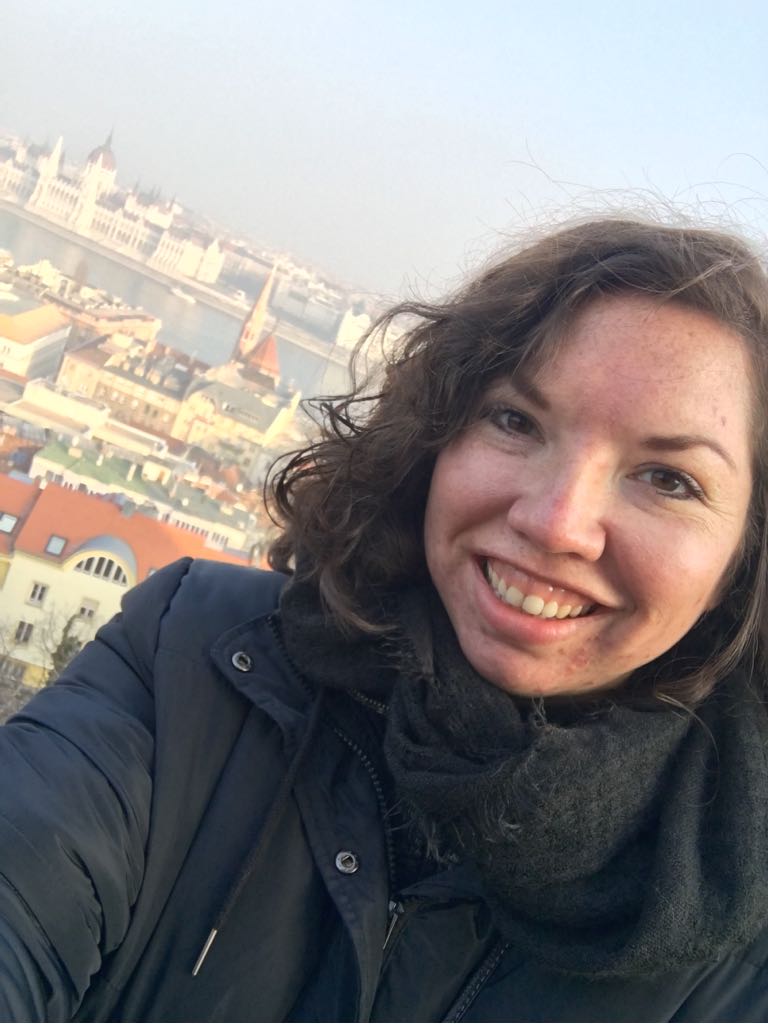
|
Elisabeth Baker (Ph.D. 2024) Elisabeth's main areas of research are child language acquisition, childhood bilingualism, and language contact with a focus on morphology. Her 2024 dissertation includes corpus and experimental studies focusing on Spanish-speaking children's regularization of Spanish verb morphology, including 2sg preterit (caíste ~ caístes) and irregular past participles (roto ~ rompido). Her 2022 Journal of Child Language article ¡Casi te caístes!: Variation in second person singular preterit forms in Spanish Children finds effects of age, language contact, and lexical frequency on Spanish children's production of 2sg forms like caístes. Her 2024 article on Spanish monolingual and bilingual children's overregularization of Spanish past participles (e.g., rompido) was published in Studies in Hispanic and Lusophone Linguistics. |

|
Fátima Dutra
Fátima holds a B.A degree in Social Work from her native Brazil. In 2015 she graduated with a M.A degree in Spanish Applied Linguistics from Purdue University, where she was also a TA and taught Spanish and Portuguese language and culture. Fátima’s research interests include social inclusion, language attitudes, and linguistic ideologies. |
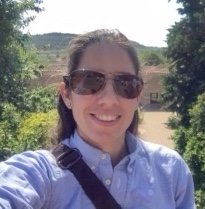
|
Ana Martínez de Figueroa (PhD Candidate)
Ana came to UNM sponsored by the US Air Force to pursue a Hispanic Linguistics degree. Her research interests include childhood language acquisition and bilingualism, language variation and change in Brazilian Portuguese, anthropological and historical linguistics. Although not her primary field of specialty, she is interested in further analysing the Portuguese language to establish correlations between Spanish and Portuguese, which in turn may prove very useful in classroom education. |

|
Carlos Enrique Ibarra (PhD Candidate) Carlos Enrique works on intergenerational change in minority, endogamous bilingual/trilingual groups within larger, hegemonic cultures and linguistic contexts with a focus on language contact, maintenance, code-switching, phonology, sociophonetics, linguistic identity and attitudes, and usage domains. He has researched linguistic contact for Mexican Veneto and Spanish in Mexico, Keresan and Traditional New Mexican Spanish in New Mexico, and Chilean Spanish and French in Quebec, in addition to his dissertation fieldwork with bilingual and trilingual Mixteco speakers in northwestern rural Oregon in 2016-2018. Carlos Enrique was the Assistant Coordinator for UNM’s Spanish as a Heritage Language program between 2018 and 2021, received the 2019 Newberry Consortium in American Indian Studies Summer Institute UNM Fellowship, and was awarded the 2020-2022 UNM Latin American and Iberian Institute PhD Fellowship. Carlos Enrique's website. |
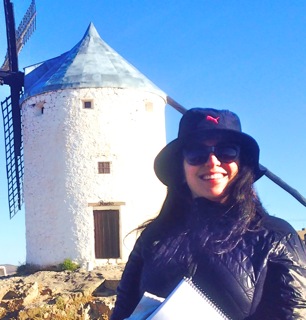
|
Karol Ibarra Zetter (PhD Candidate) Karol trabaja en aspectos fonológicos del español en su relación con la adquisición del lenguaje y el bilingüismo. Ha sido secretaria y presidenta de SPGSA (Spanish & Portuguese Graduate Student Association) y representante en el consejo estudiantil en la asociación de estudiantes de posgrado y profesionistas (GPSA) de UNM. Su artículo Cronometría del ritmo en cuatro lenguas colombianas: emberá-chamí, kamsá, kogui, y wayúu, escrito con David Páez Acevedo, se publicó en Forma y Función. |
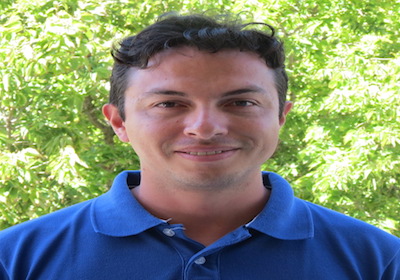
|
Fredy Mendieta Rodríguez (PhD Candidate) Fredy holds a B.A. in Spanish and Foreign Languages from the National Pedagogical University in Colombia, and an MA in Linguistics from the Instituto Caro y Cuervo in Bogotá, Colombia. He worked as a Research Assistant in that same institution, and as an Instructor of Spanish and Communications from 2011 to 2019. His MA thesis focused on rhotic sounds in Spanish in Bogotá. His PhD dissertation focuses on the way embodied phonological features interact to increase directive force. He has recently published the book Lexicografía electrónica especializada: el caso del Diccionario Académico de Medicina (Diacme) (2020) with colleagues at the Instituto Caro y Cuervo, as well as a chapter called «Erre con erre, cigarro…»: consideraciones para el diseño de cuestionarios sociolingüísticos a propósito del estudio de las róticas en Bogotá” (2021). Fredy teaches Hispanic Linguistics courses and is a member of the Lobo Language Acquisition Lab. |
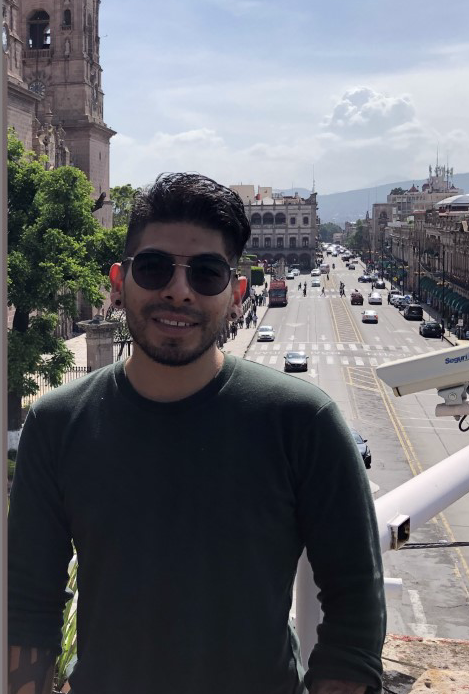
|
Érick Pineda Érick holds a B.A in Hispanic Language and Literature from Universidad Michoacana de San Nicolás de Hidalgo and an M.A. in Spanish with a focus in Hispanic Linguistics from the University of Colorado Boulder. His research interests include Language change & variation and Spanish as a second language. He is currently pursuing a Ph.D. in Hispanic Linguistics with a particular interest in Spanish in contact with the Purépecha |
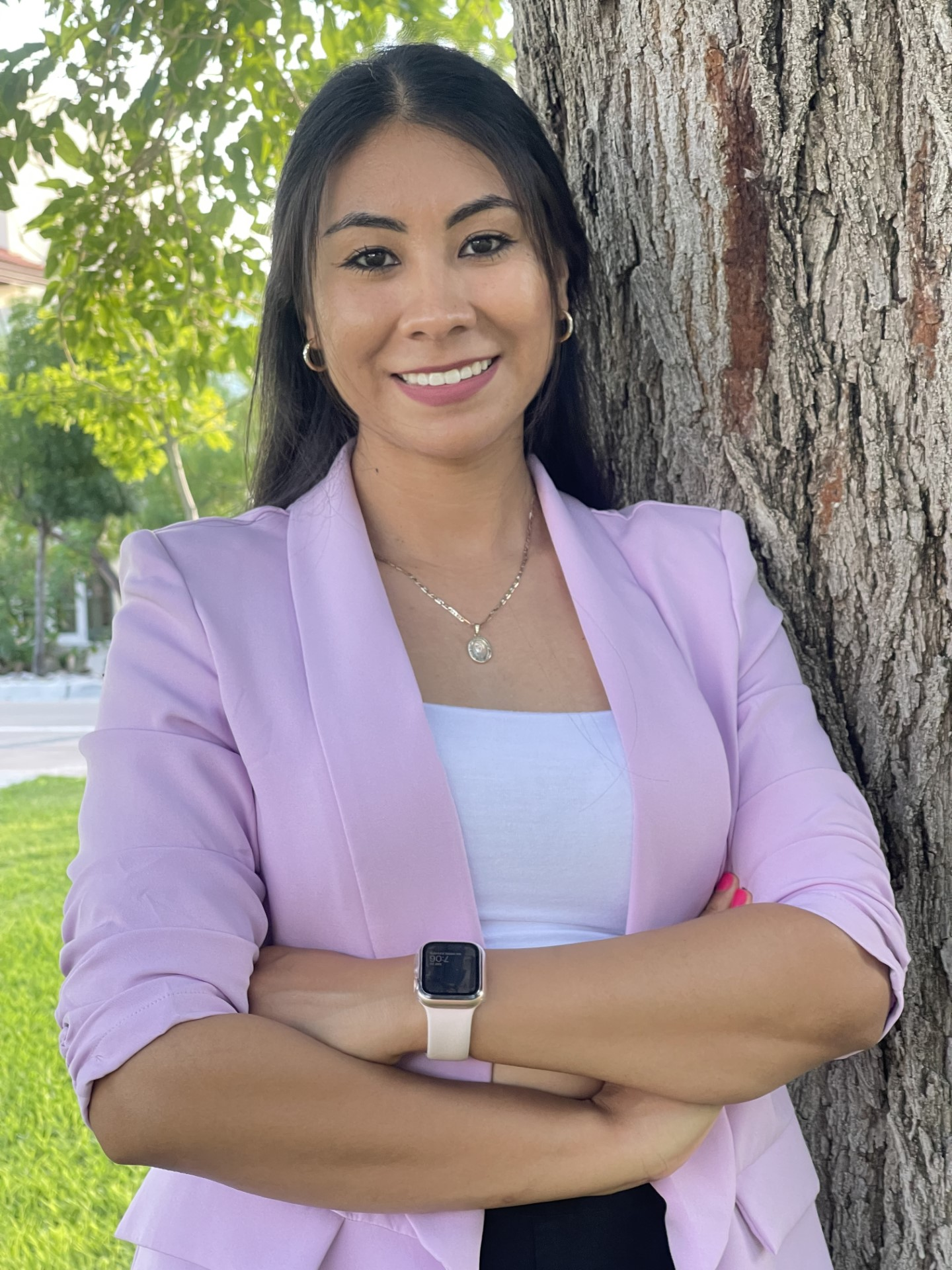
|
Elizabeth Zavala Elizabeth Zavala was born in Bakersfield California and received her MA and BA from New Mexico State University. Her primary interests are language contact, heritage speakers, code-switching, and bilingualism. Her secondary interests are morphology and syntax. She is a TA in the Spanish as a heritage language program. Upon graduating from her PhD, her plans are to work at a university as an associate professor and possibly direct a heritage program. Elizabeth hopes to gain a lot of experience at this stage of her life so she can share her knowledge with others who are driven to learn! |
MA Students
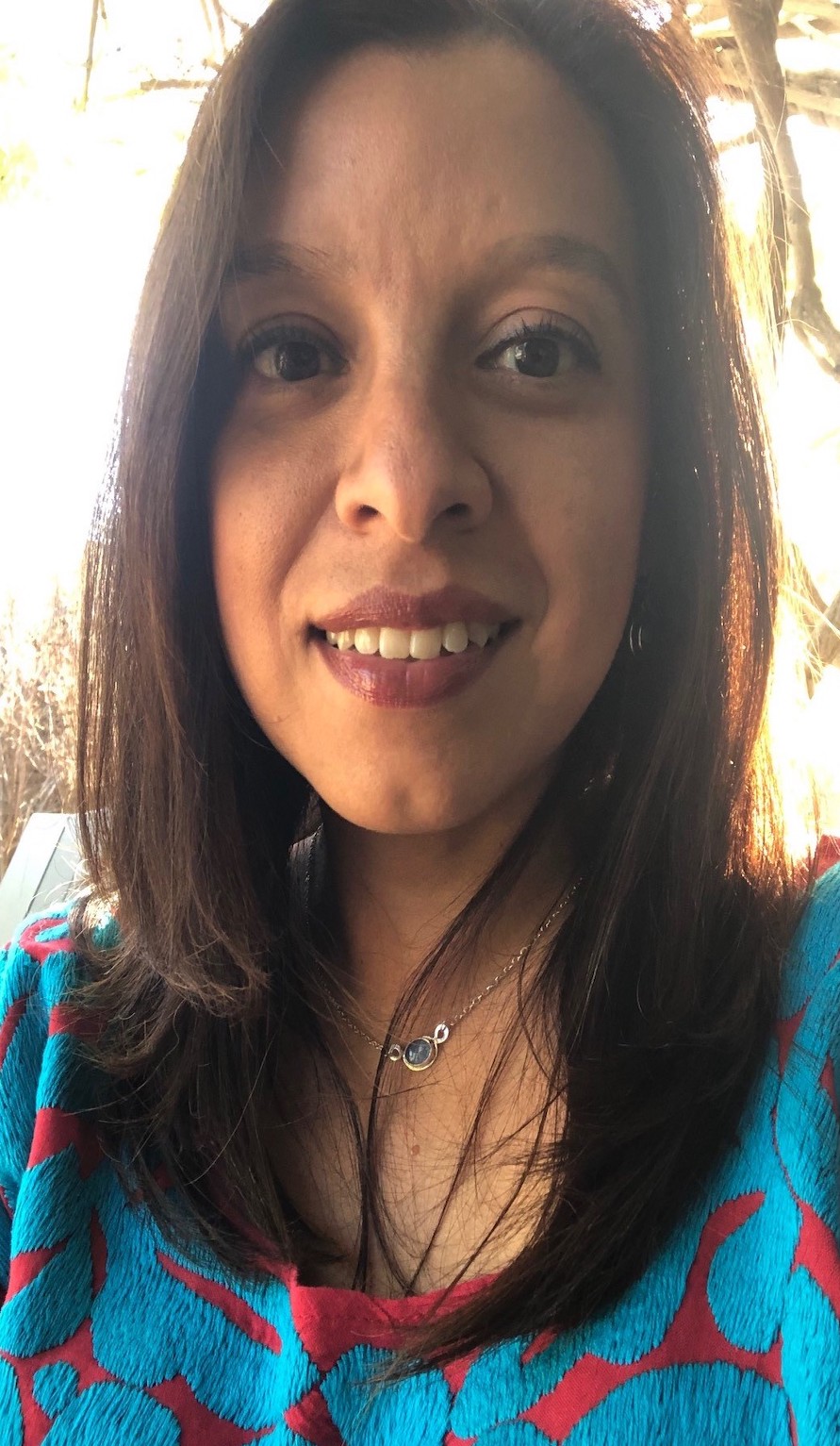
|
Liliana Alva Regalado
Liliana holds a bachelor’s degree in Journalism from Universidad de Morelia, Mexico. Now, she is pursuing a M.A. in Spanish Linguistics. As a Spanish native speaker and former teacher in Mexico, she is interested in teaching Spanish as a Heritage Language. |

|
Abigail Bowen
Abigail is an MA student in the Hispanic Linguistics program and also a TA in the Spanish as a Second Language program. She hopes to earn a dual MA in Portuguese as well. She received her BA in Spanish and Latin American Studies with a minor in History from the University of Oregon in Eugene. Her research interests include language contact, language variation, and second language acquisition. Outside of the classroom her hobbies include spending time in the mountains, reading and cooking. |

|
Gisell Cereceres Barrera
Gisell received a B.A. in Linguistics and Portuguese with a minor in Spanish in May 2022 from UNM. She is currently an MA student in Hispanic Linguistics and hopes to complete the Dual MA in Portuguese, too. Since February 2022, she is the full-time Administrative Assistant to the Director at UNM's Women's Resource Center. As a Mexican-American trilingual speaker, her interests include sociolinguistics, child-language acquisition, second-language acquisition, bilingualism, code-switching, and language revitalization. |

|
Nicholas Chávez
Born in Arvada, Colorado, Nick completed his BA in Linguistics at Metropolitan State University in Denver. He is now a TA in UNM's Spanish as a Heritage Language program. He intends to conduct sociolinguistics research on Traditional New Mexican Spanish (TNMS). This pursuit is deeply intertwined with his heritage, with ancestry originating from Mora, NM, and Salida, CO, where TNMS is still spoken to this day. Nick taught himself Spanish through movies, books, and general communicative language exposure after a 2020 study abroad experience in Costa Rica. His effort and dedication allowed him to develop a command of Spanish, despite minimal formal education. Outside of work, Nick enjoys combat sports, attending concerts, reading, and writing fictional stories. |

|
María Domínguez
María is a second-year master’s student and a teaching assistant. She graduated with a bachelors in Spanish & Linguistics from the University of Florida. After her masters, María plans to pursue a PhD in Hispanic Linguistics focusing on Spanish Heritage Speakers. Her main areas of research are Spanish as a Heritage Language and code-switching and her secondary research interests include sociolinguistics and morphosyntax. Her hobbies include painting, listening to Bad Bunny, and drinking cold brew. |
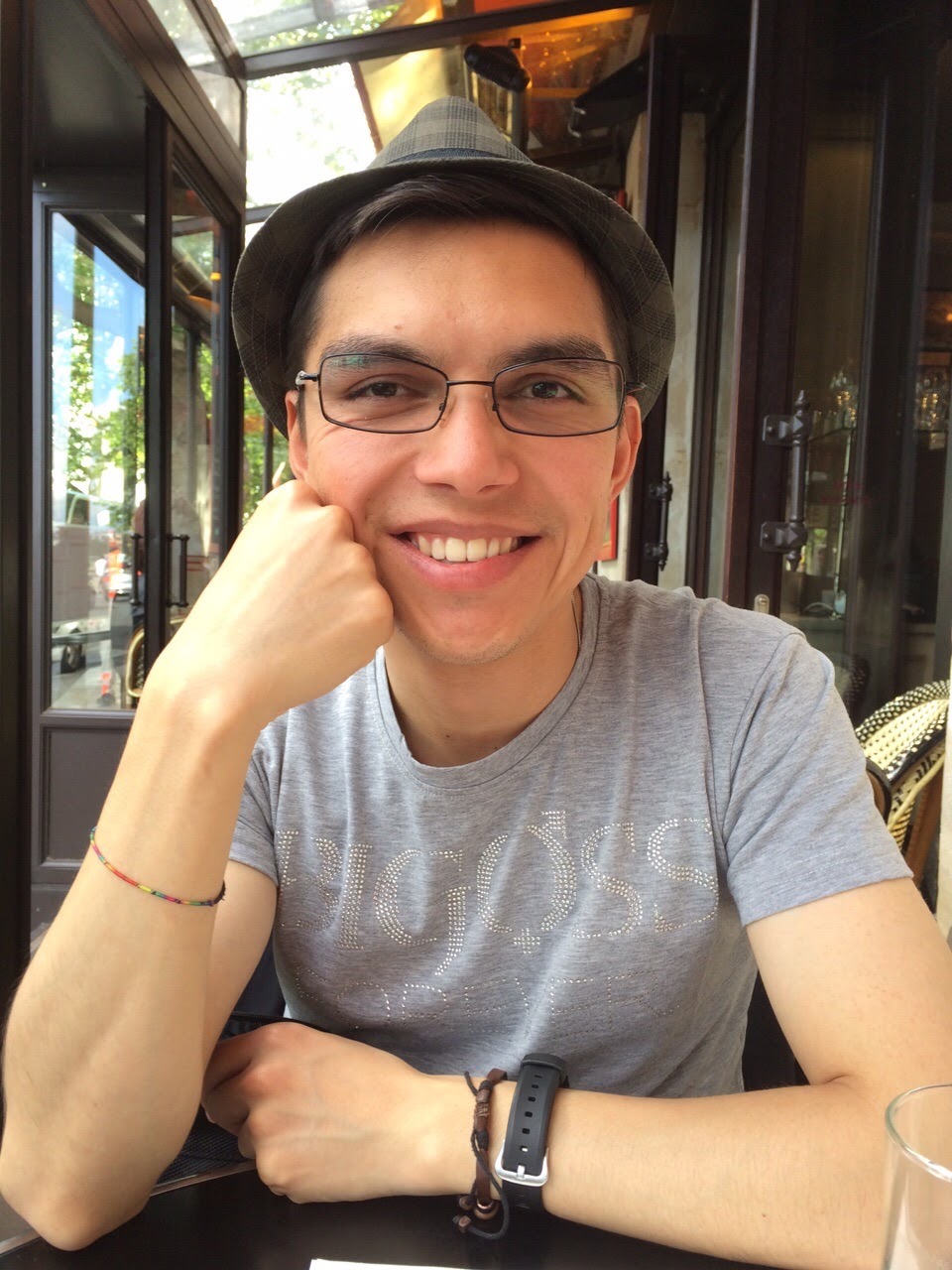
|
Fernando García Quezada
Fernando's interests are in language acquisition and multilingualism. He graduated from the School of Psychology, UMSNH in Mexico. He has conducted research in the area of psychoanalysis and neuropsychology of language at the University of Strasbourg, France. He is currently a TA of Spanish. He has also worked as a teacher of French and German. |

|
Logan Moses
Logan graduated from Coastal Carolina University with a BA in Languages and Intercultural studies with a minor in History. He received his MA in Teaching (Spanish) from Furman University in Greenville, South Carolina. Logan is currently a TA in UNM's Spanish as a Second Language Program. Logan's interests include childhood language acquisition, heritage students in the Spanish classroom, and historical linguistics. |

|
Shane Saddison-Bradford
Shane holds a B.A. in Spanish, Political Science and International Studies from the University of Wisconsin-Madison and has spent time at the Universidad de Caldas to study Hispanic Linguistics and Foreign Language Didactics in Manizales, Colombia. He is pursuing a M.A. in Hispanic Linguistics to focus his research on the sociocultural implications of language and language perceptions within a Colombian context. He is also interested in linguistic anthropology, nonstandard dialectology, language contact and foreign language acquisition within immersive environments. |

